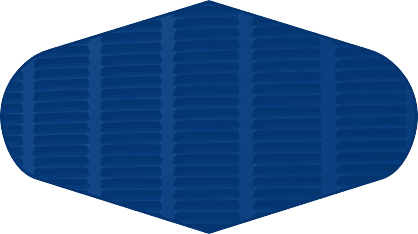As the cold winter weather approaches, many homeowners are completing all their outdoor tasks to prepare for the adverse weather conditions to come. One maintenance task that tends to receive a lot of attention is whether to cover your outdoor air conditioning unit. Knowing how and if you could cover this unit will have a big impact on its overall longevity.
What’s the Reason Behind Covering It?
Probably the biggest reason that homeowners think covering their air conditioning unit is an absolute necessity is that it helps to keep snow, ice, hail, and sleet out of the unit. Many homeowners are worried about how these adverse weather conditions can affect the internal components and their lifespan inside the air conditioning system.
For these reasons, homeowners may purchase a full-size cover for their outdoor HVAC unit. Typically, this cover is constructed of a thick material that completely encases the outdoor AC unit to protect it from the winter elements. While most commonly available in black, these full-size covers come in a variety of different colors to help blend in with the exterior of your house.
The Downfalls of Covering Your Outside AC Unit
While covering your outdoor AC unit does protect it from most of the wintertime elements, it does come along with some downfalls. First, these hardcovers make it difficult, if not impossible, for air to move freely throughout the AC unit. This stagnant air can end up leading to a high humidity level that produces the perfect environment for mold and mildew growth.
Additionally, high humidity can also lead to premature corrosion on the metal components of your air conditioning unit. Apart from the visible damage that your cover can create, it also becomes a big attractant for unwanted critters like mice. They will find a way into the cover and live inside your air conditioning unit throughout the winter months to stay alive. This can create a whole slew of problems when you go to start your air conditioning unit in the summer.
What Should You Do?
After learning about the pitfalls of using a full-size AC cover, you may be wondering what you should do to help protect your unit in the wintertime without utilizing these covers. In reality, you have two main approaches that you can utilize.
First, you can simply leave your system as it is. HVAC system manufacturers specifically design their outdoor condenser units to withstand harsh wintertime conditions. As long as your unit receives adequate airflow throughout its side grates, it will be protected against unwanted corrosion and mold or mildew growth.
Your second option is to use a partial HVAC cover. This is typically constructed of a more mesh-like material that allows air to flow freely through the cover to prevent unwanted moisture accumulation inside of your system. These partial covers only cover the top side of your unit. They adhere via bungee cords attached to the sides of your unit. This allows for optimal airflow throughout the unit to prevent internal problems while preventing any debris from being dropped directly into the top of the unit.
Prepping Your Outdoor HVAC Unit for Winter Weather
One of the best things that you can do to extend the longevity of your outdoor HVAC unit is to give it a thorough cleaning during the fall months. This will help to remove any debris that has found its way inside your unit, such as twigs and leaves. By removing this debris before the winter weather hits, you can ensure that it doesn’t create any unwanted high moisture conditions that can lead to corrosion and deterioration of the metal components inside your outdoor air conditioning unit.
When cleaning your outdoor unit, you want to use a good commercial cleaning product that is intended for outdoor condenser units. Make sure that you don’t use a pressure washer, as that could damage the sensitive metal grates on the side of your unit. It’s best to stick with a hose and a hand scrub brush to remove any stuck-on debris that you find.
Top-Quality HVAC Services
Jco Heating A/C Electrical offers top-quality HVAC services for Springfield, OR, and surrounding communities. We can help with all of your electrical, commercial, indoor air quality, and new home needs. Call our office today to get one of our highly skilled technicians to visit your home and check out your HVAC system.

 WE SERVICE ALL MAKES & MODELS
WE SERVICE ALL MAKES & MODELS